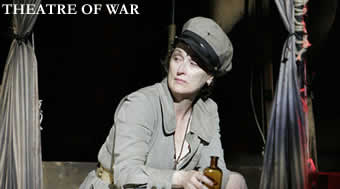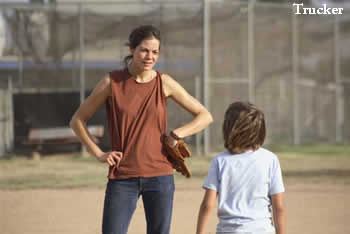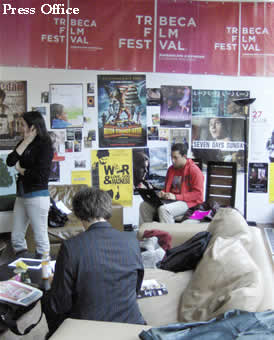 It’s sad to say goodbye to this year’s impressively programmed Tribeca Film Festival, which closed on Sunday. So I’ll delay the inevitable by sharing my thoughts on some of the final screenings and events I attended without – forgive the pun – further adieu.
It’s sad to say goodbye to this year’s impressively programmed Tribeca Film Festival, which closed on Sunday. So I’ll delay the inevitable by sharing my thoughts on some of the final screenings and events I attended without – forgive the pun – further adieu.
Over at Tribeca Talks series, writer-director-composer Mike Figgis reminded folks of yet another reason to hyphenate him: he’s a technically ingenious inventor as well. Figgis’ “Fig Rig” innovation not only serves as a stabilizing wheel and frame mount for small digital cameras and various accessories, it also serves to stabilize his finances as well. The revenues he’s rigged up from the “Fig Rig” (manufactured and distributed by Manfrotto) are more lucrative than anything he’s earned from his films, he reported.
A fierce advocate of digital filmmaking, Figgis anticipates the arrival of more “ad-hoc, self-made cinemas” in people’s neighborhoods – screening, no doubt, more ad-hoc self-made movies. More of his prognostications and insights can be found in his latest book, Digital Filmmaking published in paperback by Faber and Faber.
Speaking of books, there’s a new edition of that annual overview of global film production, The International Film Guide, first published by Variety 33 years ago and now published by the British film specialist Wallflower Press. Editor Ian Haydn Smith told me that he is already working on the 2009 edition featuring reports from 115 countries. Smith & Co. are also looking into putting out an on-line version as well.
But who needs books when you can watch some exceptional movies? To wit, here’s the third and final installment of my Tribeca “must-see” list:
Trucker, written and directed by James Mottern in his feature debut. Michelle Monaghan (currently starring nationwide in Made of Honor) plays a female truck driver who must come to terms with her new role as a mother when her 11-year old son Peter (Jimmy Bennett) suddenly appears on her doorstep. Benjamin Brett also stars in this compelling film about parental role reversal.
driver who must come to terms with her new role as a mother when her 11-year old son Peter (Jimmy Bennett) suddenly appears on her doorstep. Benjamin Brett also stars in this compelling film about parental role reversal.
Theatre of War is a documentary by John Walter about the staging of Brecht’s play Mother Courage and Her Children at the Public Theater in 2006. Walter elegantly examines the rehearsal process as well as the life of yet another hyphenate – playwright-writer-politician-philosopher Brecht himself – and the troubled times that shaped his work and art. Walter smoothly intercuts the 1949 German audio recording of Mutter Courage (starring Brecht’s wife Helene Weigel) with Meryl Streep’s 2006 performance in English, building a poignant arc between past and present.
Everywhere at Once by Peter Lindbergh and Holly Fisher was the most experimental film I saw at the festival. Lindbergh’s gorgeous black and white photographs, along with old film footage featuring French actress Jeanne Moreau, are deftly woven into a narrative written by Kimiko Hahn and sensuously recited by Moreau. This is a film that invites you to just sit back, look and listen as it seamlessly unfolds.
 Besides cigars, Cuban music continues to be a major export around the world, including here at Tribeca with the screening of three documentaries about Cuban musician. Celia the Queen by Joe Cardona and Mario de Varona is a tribute to the legendary Cuban musician Celia Cruz. 90 Miles The Documentary by music producer Emilio Estafan was filmed during the recording of his wife Gloria Estefan’s latest album 90 Miles and taps into the history and heritage of Cuban music. And Old Man Bebo by Carlos Carcas features a compelling portrait of the 89-year old Cuban musician and composer Bebo Valdes, who moved to Sweden during the revolution and lives there still. The film won Carcas the Best New Documentary Filmmaker award. (For a complete list of award winners, please go to www.tribecafilmfestival.org.)
Besides cigars, Cuban music continues to be a major export around the world, including here at Tribeca with the screening of three documentaries about Cuban musician. Celia the Queen by Joe Cardona and Mario de Varona is a tribute to the legendary Cuban musician Celia Cruz. 90 Miles The Documentary by music producer Emilio Estafan was filmed during the recording of his wife Gloria Estefan’s latest album 90 Miles and taps into the history and heritage of Cuban music. And Old Man Bebo by Carlos Carcas features a compelling portrait of the 89-year old Cuban musician and composer Bebo Valdes, who moved to Sweden during the revolution and lives there still. The film won Carcas the Best New Documentary Filmmaker award. (For a complete list of award winners, please go to www.tribecafilmfestival.org.)
Julian Schnabel, who in my book made one of last year’s most stunning films with The Diving Bell and the Butterfly, brought his new work Lou Reed’s Berlin to the festival, documenting the 2006 performance of Reed’s 1973 Berlin. Using fragments of filmed material with Emmanuelle Seigner, the French star of Diving Bell, Schnabel offers some evocative visual texture to Reed’s dark and daring lyrics. Both Reed and Schnabel appeared after the screening in conversation with Vanity Fair editor Lisa Robinson at the Directors Guild of America.
Finally, if there were awards for festival organization, I’d hand out one to the festival programmers for an exceptional line-up this year, and for screening the films in the beautiful Village East Cinemas (not technically in Tribeca, but near enough). And another one to the press and publicity departments for such speedy and reliable service. This year’s Tribeca was a terrific adventure starring some extraordinary filmmakers, so here’s a fond goodbye to all that — and hello, I hope, to even greater discoveries and surprises next year.

